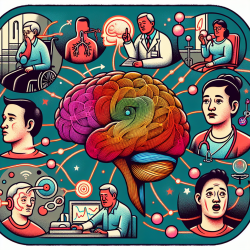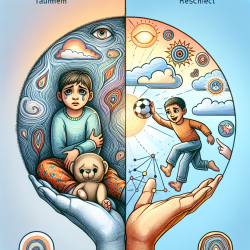Introduction
Empathy is a cornerstone of effective patient-centered care, especially for those in the healthcare profession. It enhances communication, builds trust, and improves patient outcomes. A recent study titled Civic-Mindedness Sustains Empathy in a Cohort of Physical Therapy Students: A Pilot Cohort Study explores the relationship between empathy and civic-mindedness in physical therapy students, providing valuable insights for practitioners looking to enhance their skills.
The Study: Civic-Mindedness and Empathy
Conducted by researchers at Widener University, this study examined 48 physical therapy students over a three-year service-learning intensive curriculum. The researchers aimed to explore potential relationships between civic-mindedness and empathy, using the Jefferson Scale for Empathy–Health Professions Student Version (JSE-HPS) and the Civic-Minded Professional Scale (CMP).
Interestingly, while the study found no significant differences in empathy scores over time, it did reveal that civic-mindedness scores increased. This suggests that civic-mindedness, fostered through consistent service-learning, may support or even enhance empathy among healthcare students.
Practical Applications for Practitioners
For practitioners, the study's findings offer several practical applications:
- Engage in Service-Learning: Incorporate service-learning opportunities into your practice or professional development. This could involve volunteering at community clinics or participating in pro bono services. Such experiences can enhance your civic-mindedness and, in turn, your empathy.
- Reflective Practice: Engage in regular reflection on your experiences with patients. Reflective practice is a key component of service-learning and can help reinforce empathy by allowing you to consider the emotional and cognitive aspects of patient interactions.
- Peer Mentorship: Consider establishing peer mentorship programs within your practice. Pairing individuals with high empathy scores with those who may need development can provide mutual benefits and foster a supportive learning environment.
- Empathy as an Admission Criterion: If you're involved in educational programs, consider using empathy as a criterion for admission. Identifying students with high empathy levels can help create a more compassionate healthcare workforce.
Encouraging Further Research
The study also highlights areas for further research, such as exploring the relationship between civic-mindedness, empathy, and compassion fatigue. Understanding these relationships can help develop strategies to prevent burnout and promote well-being among healthcare providers.
Conclusion
Empathy is not just an innate trait but a skill that can be nurtured and developed through intentional practices like service-learning and reflection. By fostering civic-mindedness, practitioners can enhance their empathy, leading to improved patient care and professional satisfaction.
To read the original research paper, please follow this link: Civic-Mindedness Sustains Empathy in a Cohort of Physical Therapy Students: A Pilot Cohort Study.










